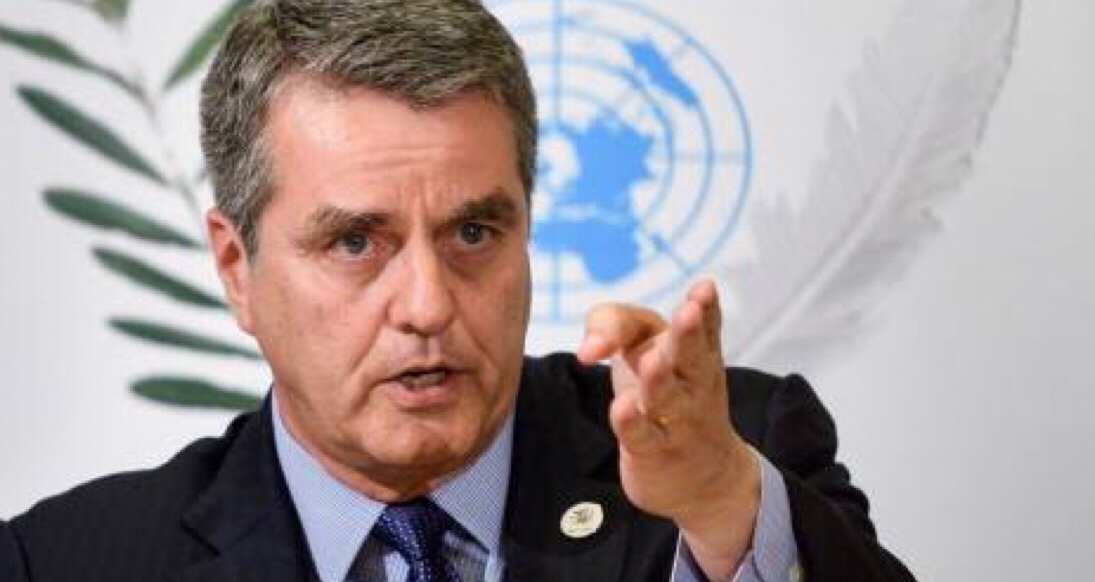WTO warns on disruption to UK of no-deal Brexit
Agreement on tariffs and quotas with all WTO members was ‘very unlikely’ by next March.
The World Trade Organization has warned about potential disruption for the UK from a no-deal Brexit saying that it is “very unlikely” that the government will have agreed tariffs and quotas with all other member countries by next March.
Hardline Brexiters have pointed to the WTO as a safety net that would allow trade to continue, with additional barriers, even if Britain left the EU without a deal.
But Roberto Azevêdo, the head of the WTO said on Friday that other countries would look to take advantage of the UK’s position, complicating or preventing agreement on some points.

“The moment that other countries begin to sense an opportunity to increase the market share or increase the quota here or there, they’re going to go for that. There will be a lot of uncertainty here, there will be a lot of unpredictability,” he told BBC Radio 4’s Today programme.
“It is very unlikely that you’re going to have 100 per cent agreed outcome for all WTO members between now and March.”
Mr Azevêdo’s comments are a notably candid assessment of the legal obstacles facing the UK.
The UK’s Department for International Trade said in response that it was looking to simply facilitate talks by “replicat[ing] as far as possible our current obligations”.
“We have already started the formal process of agreeing the schedules with WTO members. It can be completed within three months. But it is not uncommon for it to take longer and for members to trade under unagreed schedules for periods of time while concerns about commitments are ironed out,” the department said.
A UK government technical notice published on Thursday said that, in the event of a no-deal Brexit, “trade with the EU will be on non-preferential, World Trade Organization terms”, but did not address what would happen if there was no agreement with other WTO members.
The British government has said that a no-deal Brexit is unlikely, although Liam Fox, the international trade secretary in charge of negotiating with the WTO, has said it is a 60 per cent probability. David Lidington, the Cabinet Office minister, said on Friday that negotiations with the EU could continue into November — echoing a statement made this week by Michel Barnier, the lead EU negotiator.
In a no deal scenario, Mr Azevêdo made clear that the EU could not exempt the UK from tariffs. “The EU cannot discriminate among the WTO members . . . The other members pay tariffs, so the UK will have to pay tariffs as well,” he said.
Under the same WTO rules, Britain could impose zero tariffs on some goods — as proposed by some Brexiters — but it would have to do so for all WTO members.
Overall Mr Azevêdo, a former Brazilian trade negotiator, said of a no-deal Brexit: “There will be an impact — it may be larger or smaller depending on the sector . . . It’s not going to be the end of the world . . . but it’s not going to be a walk in the park either.”
The WTO could also object to Britain’s proposed border system with the EU, the so-called facilitated customs arrangements. UK trade secretary Mr Fox said last month that: “There is no way with a system that has never been tested before to know whether the WTO will regard it as compliant.”
Source: FT
You must be logged in to post a comment.